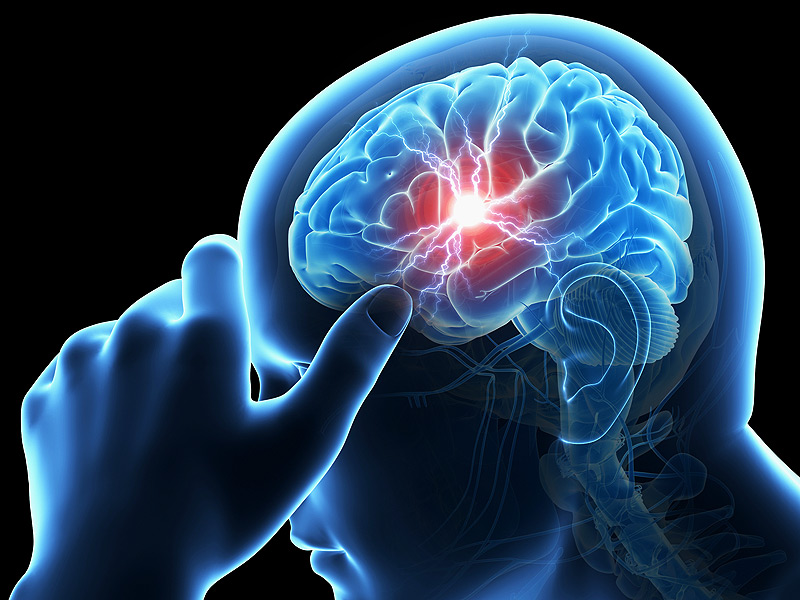
A stroke can be a devastating event, often leading to long-term disability or even death. However, by being aware of the risk factors and taking proactive measures, we can significantly reduce the likelihood of suffering from this life-altering condition. We will discuss the the potential risk factors of brain stroke and tips from our stroke specialist in Mumbai on how to avoid brain stroke.
Stroke is a devastating condition that can shatter lives in an instant. Understanding the risk factors associated with stroke and taking proactive measures on how to avoid brain strokecan help protect ourselves and our loved ones from its merciless grip. There are two primary types of risk factors: modifiable and non-modifiable.
Am I at risk for a stroke? You might be having this question. Taking charge of your health and making positive changes can significantly reduce the risk of stroke. Here are some modifiable risk factors and the steps suggested by the doctors at our brain stroke clinic in Mumbai that you can take to avoid them:
One of the primary risk factors for stroke is high blood pressure, also known as hypertension. Uncontrolled high blood pressure can damage blood vessels, leading to the formation of blood clots or causing blood vessel ruptures, both of which can trigger a stroke. To lower your risk, the brain stroke doctor in Mumbai recommends regular blood pressure checks, adopting a heart-healthy diet, engaging in regular physical activity, and following your healthcare provider's advice on managing hypertension.
Smoking and tobacco use are detrimental to overall health and significantly increase the risk of stroke. Nicotine and other harmful chemicals in tobacco products can narrow and damage blood vessels, impeding blood flow to the brain. If you're a smoker, quitting is the best decision you can make to safeguard your health and reduce stroke risk. Seek support from friends, family, or professional cessation programs to kick the habit for good.
Diabetes is a condition characterized by high blood sugar levels, and it can have severe consequences for cardiovascular health. Individuals with diabetes have an elevated risk of stroke due to potential damage to blood vessels and nerves. Managing diabetes through proper diet, exercise, and medication as prescribed by your healthcare provider is crucial in reducing stroke risk.
Elevated cholesterol levels contribute to the formation of fatty deposits in blood vessels, increasing the chances of stroke. Regular cholesterol screening, adopting a low-fat diet, and staying physically active can help manage cholesterol levels and minimize stroke risk.
Being overweight or leading a sedentary lifestyle can negatively impact various aspects of health, including stroke risk. Engaging in regular physical activity, such as brisk walking, swimming, or cycling, can promote weight management, enhance cardiovascular health, and lower the risk of stroke.
A poor diet high in saturated fats, trans fats, and sodium can raise blood pressure, cholesterol levels, and increase the risk of stroke.The doctors at our brain stroke hospital in Mumbai suggest following a balanced diet rich in fruits, vegetables, whole grains, and lean proteins. Minimize processed foods and sugary beverages to support optimal heart health.
While moderate alcohol consumption may have some cardiovascular benefits, excessive drinking can lead to high blood pressure and other health issues, elevating the risk of stroke. Limit alcohol intake to moderate levels as recommended by healthcare professionals, or avoid it altogether if advised.
Some risk factors for stroke are beyond our control, but being aware of them can guide you in taking preventative measures on how to avoid brain stroke:
As we age, the risk of stroke increases, with the majority of strokes occurring in individuals over the age of 65. While we cannot control aging, understanding the other risk factors can help us mitigate the overall risk.
Men and women have different stroke risk profiles. Men tend to have a higher risk of stroke at younger ages, while women's risk increases after menopause. Expert stroke specialist in Mumbai suggests regular health checkups and lifestyle modifications can still help manage the risk.
Family history and genetic predisposition can influence stroke risk. If you have a family history of stroke or related conditions, it becomes even more critical to adopt a healthy lifestyle and keep an eye on other modifiable risk factors.
If you've already experienced a stroke or a transient ischemic attack (TIA), it puts you at higher risk for subsequent strokes. Following the prescribed treatment plan and making lifestyle changes become essential to prevent recurrent strokes.
Understanding and addressing the risk factors of stroke is extremely importance in safeguarding our health and well-being. By taking proactive steps provided by the experts at the best stroke clinic in Mumbai to manage modifiable risk factors like high blood pressure, smoking, diabetes, high cholesterol, obesity, unhealthy diet, and excessive alcohol consumption, we can significantly reduce the likelihood of suffering from a stroke. Additionally, recognizing non-modifiable risk factors can help us remain vigilant and take preventive measures.
Remember, knowledge is power. Empower yourself with the information and resources necessary to minimize stroke risk and prioritize your well-being. Together, let's strive for a healthier future, one where strokes become preventable through education, awareness, and proactive healthcare.
For expert insights on stroke causes, signs, treatment, recovery, and types, explore our blog post: Stroke - What Causes Brain attack , Stroke Signs, Stroke Treatment and Recovery, and Stroke Types
When it comes to treating strokes, getting fast and skilled medical help can make a big difference. Dr LH Hiranandani Hospital is well-known for the best brain stroke treatment in Mumbai. We have a team of experienced doctors and advanced medical technology to take good care of patients. The hospital focuses on the needs of patients and provides comprehensive and caring stroke treatment, aiming for the best results.